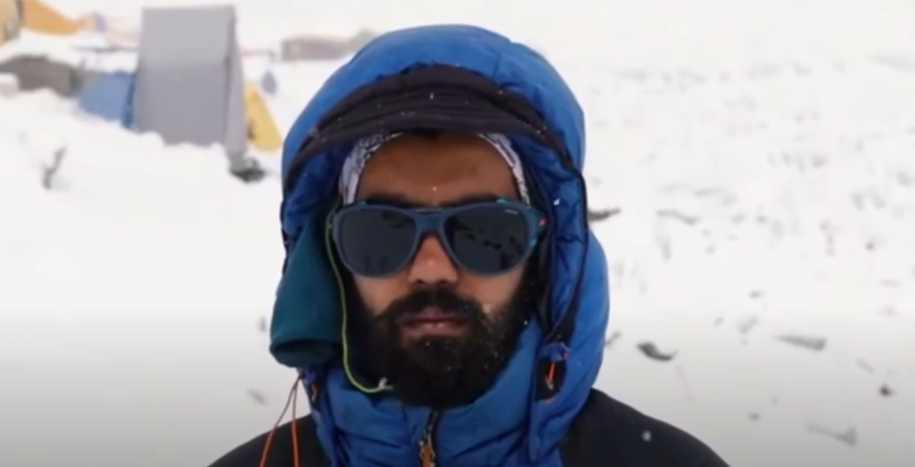Mountaineer, 25, scales Mt Everest in his first attempt weeks after recovering from Covid-19

A 25-year-old mountaineer from Vasai in India’s Maharashtra state has conquered Mount Everest in his first attempt — just days after recovering from Covid-19 infection.
Harshvardhan Joshi also climbed the world’s highest mountain peak in an eco-friendly manner to promote sustainability. Mr Joshi had been training for five years to achieve the feat, reports said.
He had planned to summit Mount Everest on 8 May, but just a week before that, he tested positive for coronavirus. He told the Indian Express: “I carried on with my preparations after taking the test.” But when he found out he was positive “my heart sank.”
Mr Joshi’s Everest mission, called “SangHarsh”, was not easy.
“You would imagine training and being responsible for the expedition would prepare you for everything, but that’s not quite so what happened up there,” Mr Joshi said. “The pandemic did make us cautious and the journey was just fine until me and some of my team members contracted the virus.”
He soon heard the news that there was an outbreak of Covid-19 at the Everest base camp. He said: “Owing to the pandemic, teams were not interacting with each other at the base camp and everyone was trying to maintain their bubble. We are not sure who contracted the virus when and where.”
To make matters worse, there were no Covid testing facilities at the base camp, Mr Joshi said.
After he and his teammates started feeling sick, the wife of a team doctor flew in with some rapid-antigen test kits. Mr Joshi said: “I wasn’t sure if it was coronavirus or general altitude sickness, but I knew I had to get tested before starting the final phase of my journey.”
Mr Joshi said that he was not willing to return given the amount of money he had spent on the expedition. “I wasn’t going to be reckless or irresponsible, but I wasn’t going to return right away. My plans had already been cancelled once due to the pandemic and I wasn’t ready to let my training go to waste. Let alone the humongous financial load that this expedition holds.”
He said that it would have been difficult to find another sponsor for his mission.
He isolated himself and started monitoring his condition. He soon realised he was asymptomatic. It helped that Mr Joshi was fully vaccinated before the start of his expedition, reports said. He said: “Vaccines definitely work. It was probably why I could manage to do the impossible…recovering from Covid in an environment that is perilous to the disease.”
Mr Joshi said that his team did not burn non-renewable fuel for heating and other purposes — hence reducing their carbon footprint to a minimum. He said: “Mountain environments are very sensitive to climate change. They appear among the most severely and rapidly impacted ecosystems and can be affected easily. Even the most isolated valleys have been touched by climate change.”
Local reports said he had already acclimatised for over four weeks. Finally, the reports said after ten days, “as a small weather window was coming up, he started his journey to Camp 2 and conquered the summit on 23 May.”
He wrote on his Instagram: “I was fortunate that I got to stand at the top of the world despite all the odds I faced this year. I made it to the summit of Mt. Everest at around 06.30 am on the 23rd of May 2021.”
On 29 May, he finally managed to climb down, before being able to find a helicopter to fly out of the base camp.
On finally reaching the summit, Mr Joshi said: “When I reached the top and waved the flag, I just couldn’t feel much, I was very numb, to be honest. I was very happy but I was thinking this is just 50 per cent of the journey.” He added that: “Many might think summiting is all that is but climbing down is more dangerous.”
His goal now is to scale Lhotse — the fourth highest mountain in the world thought to be more challenging than the Everest. He told the media: “My original plan was to climb both Everest and Lhotse and set a record for India but bad weather didn’t permit it.”
Read More
Watch live as Joe Biden signs Juneteenth National Independence Day Act
Sinkhole swallows car in shocking video from Mumbai amid heavy monsoon rains

 Yahoo Finance
Yahoo Finance 